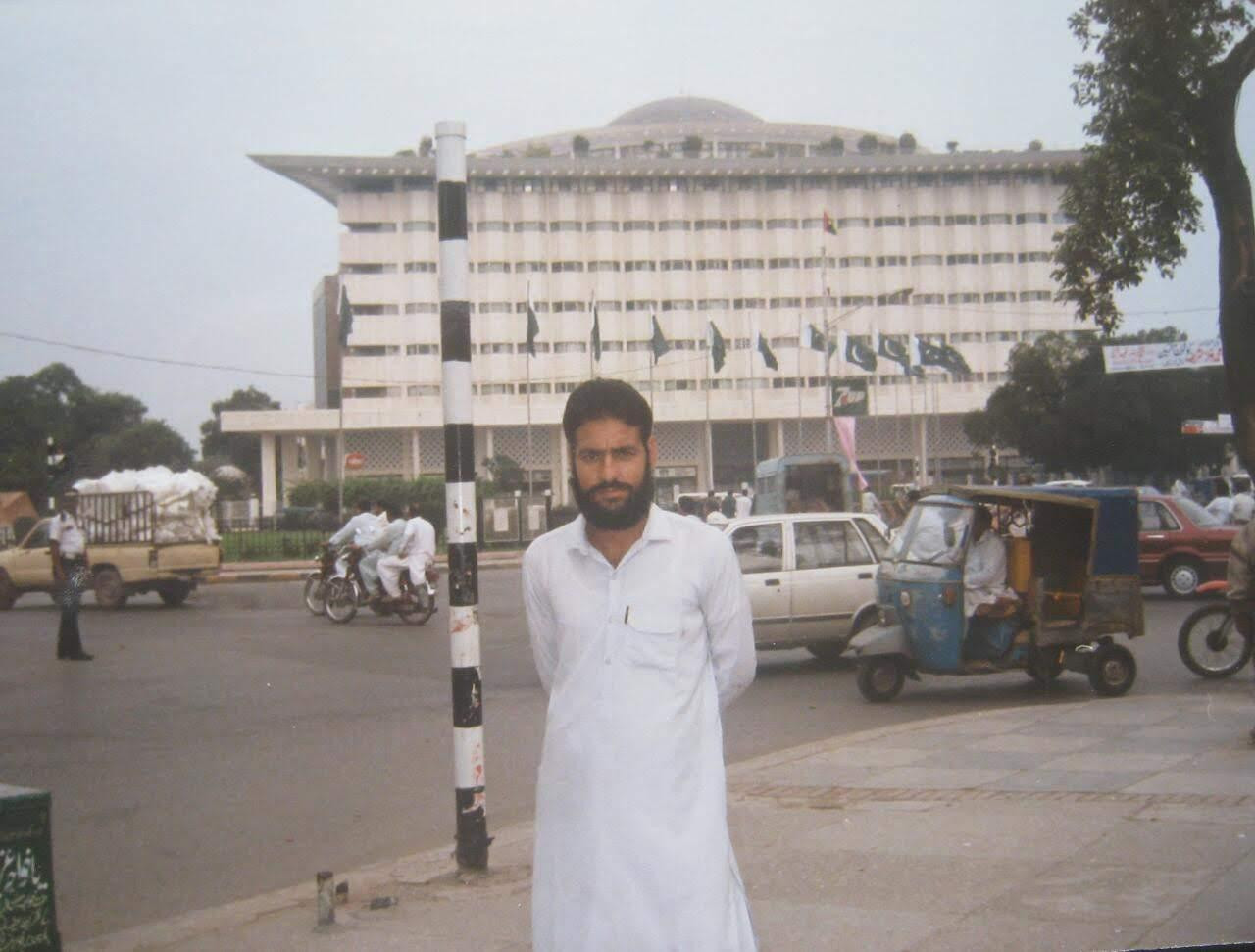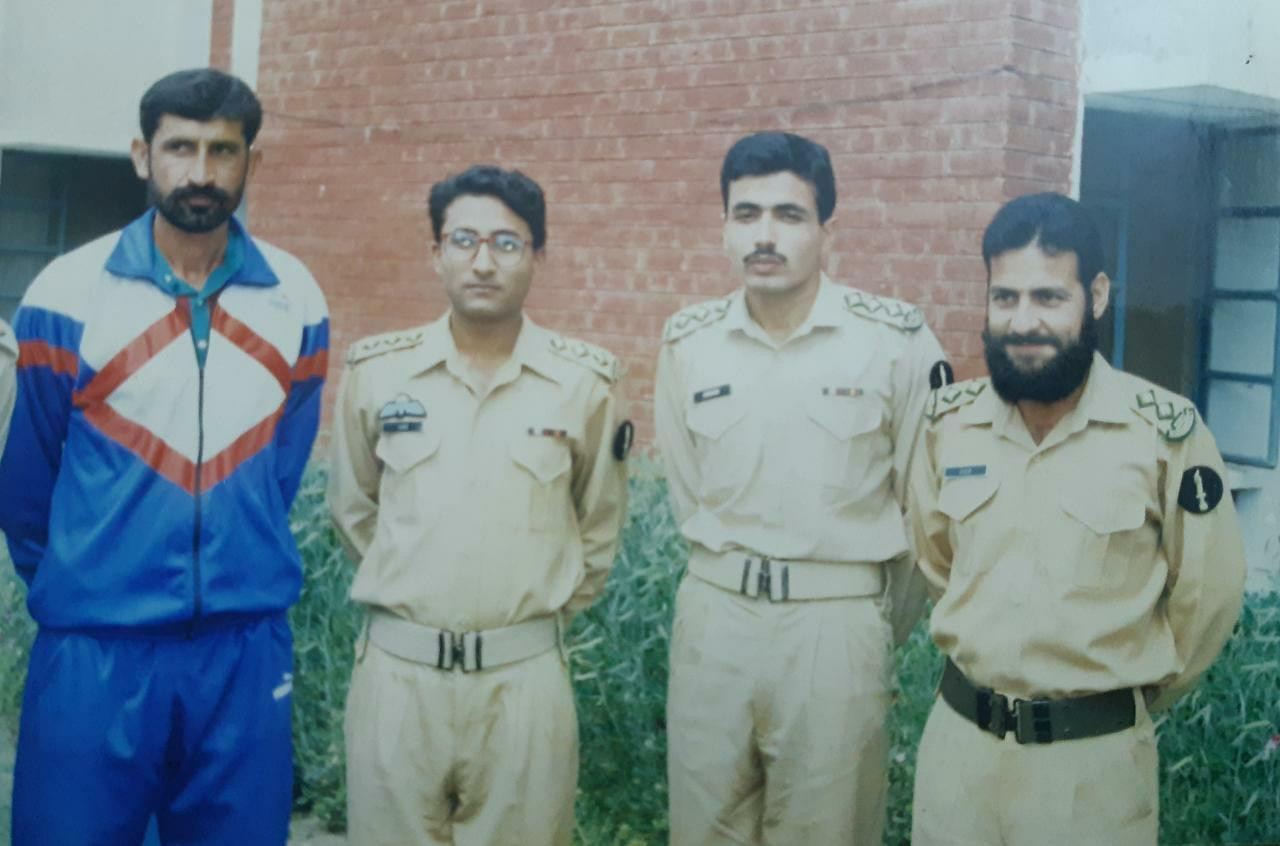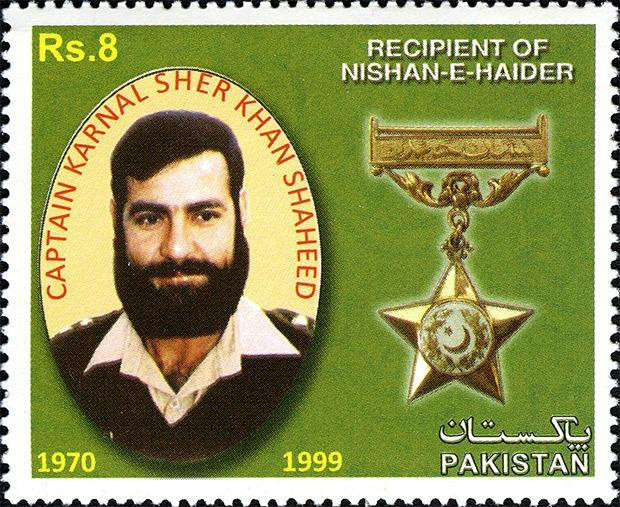ISLAMABAD: Over two decades have passed since Capt Karnal Sher Khan laid down his life in the service of his country in the icy, inhospitable peaks in India-occupied Kashmir, but his legacy continues to breathe life into the nation’s soul.
While many lone survivors faced the dilemma of keeping the fighting on, the ‘Lion of Kargil’ dashed alone into the Indian camp, killing several Indian soldiers before embracing martyrdom.
When his body was being returned to Pakistan, even the Indians talked of his valour; of how the young officer on a mission impossible did the honourable thing: fight to the very end. Pakistan awarded its son of soil the Nishan-i-Haider. The pages of the nation’s history are lush with tales of his militarist agility and his faith in God.
The 23rd martyrdom anniversary of Sher Khan will be observed today across the country. Captain Karnal Sher Khan was a crusader from the very beginning and a very fearless officer.
Born, in 1970, the young man from Swabi first joined Pakistan Air Force (PAF) as an Airman but later joined Pakistan Army as a commissioned officer in 1992. On 14 October 1994, Khan was commissioned in the 27th Sindh Regiment of the Pakistan army – also known as the ‘Lion of Haider’ because of its bravery.

He was named Karnal Sher Khan by his grandfather who as a volunteer went to Kashmir and fought against the Indian aggressors under a commander called Colonel Sher Khan.
On November 8, 1992, when Sher arrived at the Pakistan Military Academy for training, he was no stranger to the rugged and testing training, but the harsher days and nights were going to – in the hindsight – going to prepare him for his final moments in the nation’s war against the enemy.
His colleagues reminisce about their company with him and generously offer countless anecdotes about how he was always in the good graces of his seniors and had earned admiration for his courage, perseverance, professional competence and devout piety from almost everyone.
But that was not sufficient to satisfy his appetite for goals that slowly turned his military career into a pure enthusiasm for the defence of the country. A few years later, Sher expressed his desire to be sent to the infantry.
“The infantry has the highest chance of fighting the enemy directly,” he once intimated.
Karnal Sher was the first officer to be posted directly in the 27th Sindh Regiment from the academy.
Lt Col Iqbal Mahmood welcomed the new officers as second in command. He explains: “Being a second-in-command, I was given the responsibility of developing Karnal Sher’s professionalism and personality.”
“I found Karnal Sher very serious and confident in his professional duties,” he said. “Joining the Pakistan Army was my biggest dream that came true today,” Sher told Iqbal who immediately guessed that the young man wanted to do something special.
“He was not only wise but also brave, courageous and forward in every task during training. Whether it was a field of study or philosophy of warfare, a playground or a shooting competition, Sher used to receive awards for his unit everywhere. He would greatly participate in physical training, assault courses and other unit competitions,” the lieutenant colonel shared.
Deputy subedar Qasim was posted in the 27th Sindh Regiment on the same day when Captain Karnal Sher arrived at the unit. Qasim recounts that as a junior soldier, I came across a role model like Karnal Sher Khan.

“It was a great honour for me to see him active and busy in the unit at all times. This young officer on a bicycle was at the forefront of every unit.”
Qasim, who spent much of the time with Sher during physical labours, explains that, “Karnal Sher Khan was accustomed to physical exertion. He was unmatched in PT, drill and various activities. He would take the unit’s shooting team to practice at the firing range, explain various techniques to them, and encourage them. He would be seen riding a bicycle or a motorcycle all the time and would play his part in every unity activity”.
On October 17, 1996, he was promoted to the rank of captain. A ceremony was held to celebrate his rank. At the ceremony, Karnal Sher also presented a model of a G3 rifle to his unit. That model is still preserved in the 27th Sindh Regiment and is a milestone for its soldiers and officers.
Karnal Sher Khan would spend the entire day in the sweltering sun during the firing range. While he was preparing his team, several others were practising their shooting skills at the firing range.
Karnal Sher Khan would have rushed to the target as soon as the fire was ended, even though it goes against security protocols. But he always said, “I won’t be killed by the bullet that didn’t belong to me, and the bullet that has my name written on it will kill me.”
During the Kargil conflict, he was assigned to clear a vital position. He and his fellow soldiers ignored the firepower of the opponents and bravely managed to push them back. Captain Karnal Sher Khan led the charge and was able to inflict heavy losses on the enemy.
While serving in NLI On the 5th of July 1999, the enemy forces launched a furious attack to recapture the post with the support of artillery. Despite having insignificant power compared to the numerical strength of Indian ground forces, Captain Sher repulsed the attack. He was successful but received multiple bullet wounds that resulted in his shahadat.

In recognition of his valour and determination and gallantry, Captain Karnal Sher was awarded Nisha-e-Haider, the highest military award. 27 Sind Regiment was later named Sher Haidri on Aug 20, 1999, after Shaheed Karnal Sher Khan.
Captain Karnal Sher Khan was evenly praised by the rival Indian army for setting the highest standards of bravery in the battleground.
According to the Indian Express of July 17, 1999, Captain Karnal Sher Khan of Delta Company, 12 Northern Light Infantry (NLI) won the respect of Indian officers defending the Tiger Hills feature and the adjoining hills with his courage and brilliant attack. Officers of both 18 grenadiers and 8 Sikhs watched the brave Pakistani captain lead a counterattack.
The Indian officer-in-charge who witnessed his bravery placed a praise-filled note in his pocket.
Indian Brigade Commander Brigadier (retd) Mahendra Pratap Singh acknowledged his fearlessness and courage in these words: “Full-scale counterattacks have disrupted our steps under his leadership.”























